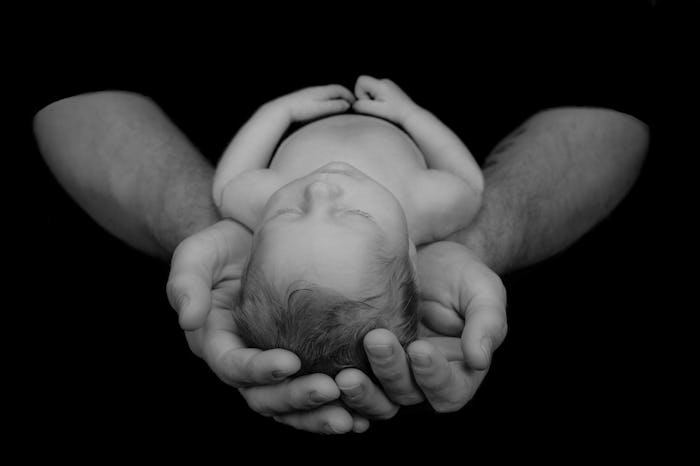Life
Why Don’t Fathers Take Parental Leave? The Gender Wage Gap Is Stopping Progress
Last week, the state of New York passed landmark legislation that guarantees almost three months of paid family leave for both part-time and full-time workers. It's, by far, the most generous state policy in the U.S. Still, new research suggests there could be some reason to be concerned that fathers might not take the state up on those benefits. According to the National Bureau of Economic Research, in states that offer some form of a gender-neutral policy, fathers are still far less likely than mothers to take time off with their newborn babies. And the gender wage gap may be the biggest reason why more fathers don’t take parental leave, researchers say.
The New York law, which goes into effect in 2018, mandates 12 weeks of paid time off to allow workers to bond with a new baby, take care of a sick family member, according to the Huffington Post. For those who might argue that parental leave is already guaranteed under FMLA, better known as the federal Family Medical Leave Act, that simply isn’t so: the federal law only covers full-time workers in certain employment situations — and not a single hour of FMLA leave has to be paid, according to the Department of Labor website.
But, New York’s law, however generous, places a cap on how much workers would be paid while on leave: just 50 percent of their average weekly pay, and a maximum of $630, the Huffington Post reported. The cap is expected to rise over the next few years, but won’t go beyond two-thirds the average weekly salary, according to that report. And NBER researchers suggest that, because fathers’ wages are more likely to be needed to bridge the gap between leave benefits and cost of living, fathers are far less likely to take more than a few days off to be with their newborns.
Looking at California (the first state to offer workers paid family leave), NBER found that after the state instituted its policy guaranteeing up to six weeks of paid benefits, the number of fathers who took parental leave went up by around 46 percent. While that figure looks encouraging, the actual proportion of fathers who took leave offered a far less rosy picture: two percent of those surveyed took leave before the policy was implemented in 2004, rising to only three percent a little over 10 years later, according to the study.
In a summary statement on the NBER website, researchers said the findings offered “important implications for addressing the gender wage gap,” since they showed fathers were willing to take paid leave where it made sense financially, but that “the unequal burden faced by women in the home, combined with a lack of flexibility in work schedules at most jobs, may be an important explanation” of why the percentage of dads who actually took leave remained in the low single digits.
So, while the news out of New York certainly sounds like good news for all workers — whether they’re expecting a newborn, finalizing an adoption, or concerned about caring for a sick parent — there’s still a disparity in which parent will actually be at home to take over those duties. While fathers are more willing to stay at home than ever before, the gender pay gap makes it far less likely they can actually afford to do so. Addressing the gender wage gap would not only mean another step toward gender economic equality, but this study shows that it would also mean breaking down the stubborn "mothers stay home to raise the children" trope.
